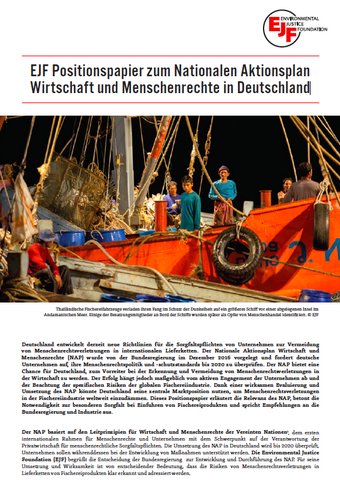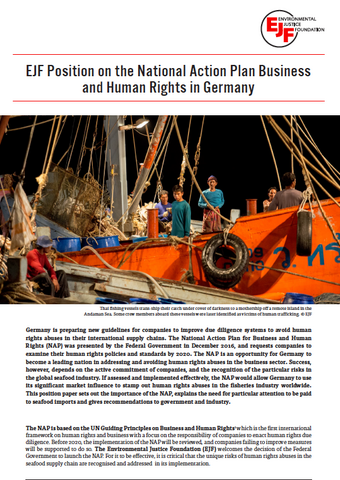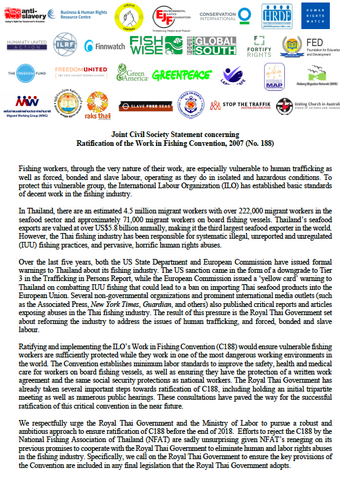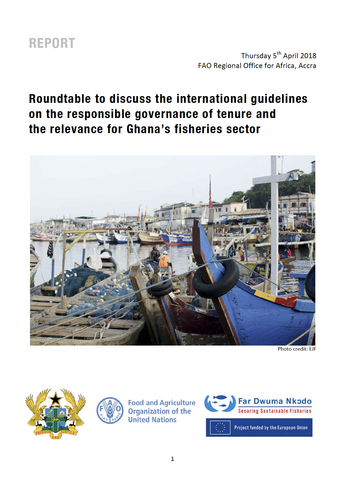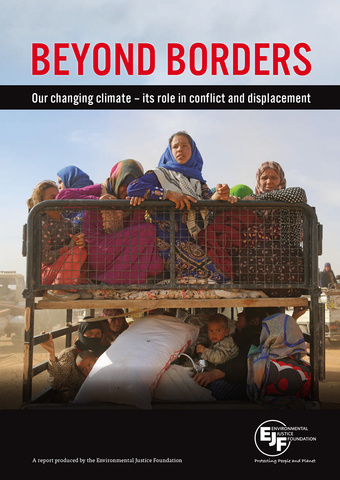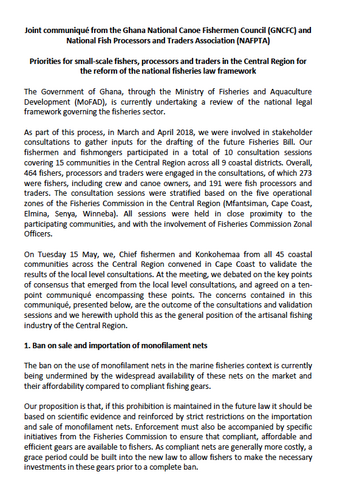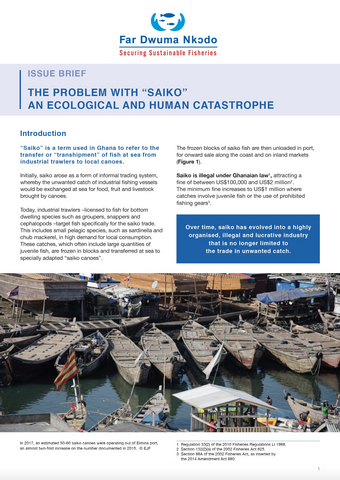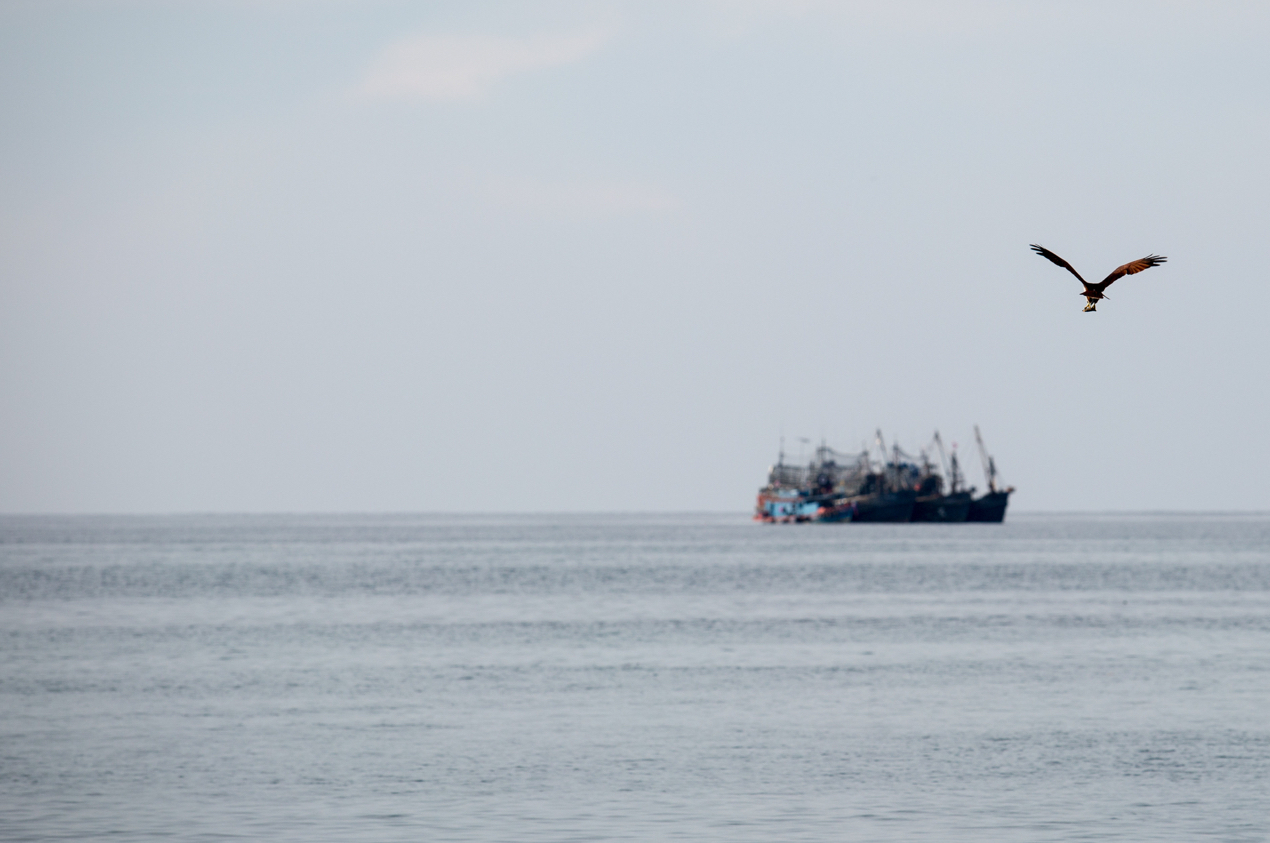
Search results
Showing 1041-1080 result returned for ""
-
News & Media
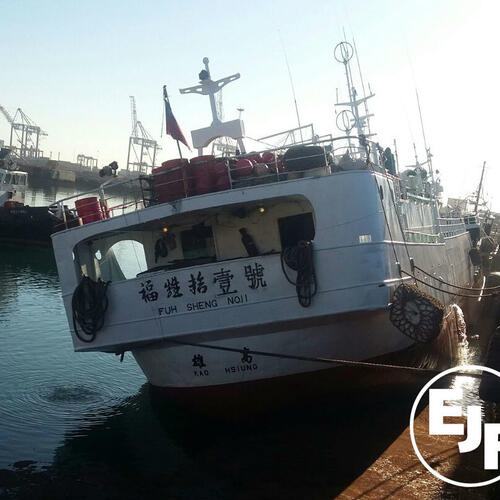 Sep 12, 2018Abuse and illegal fishing aboard Taiwanese vessel let slip through the netRead
Sep 12, 2018Abuse and illegal fishing aboard Taiwanese vessel let slip through the netRead -
Reports
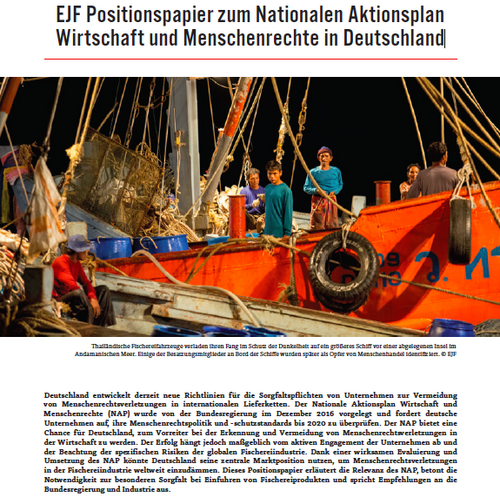 Sep 10, 2018EJF Positionspapier zum Nationalen Aktionsplan Wirtschaft und Menschenrechte in DeutschlandRead
Sep 10, 2018EJF Positionspapier zum Nationalen Aktionsplan Wirtschaft und Menschenrechte in DeutschlandReadDas Positionspapier unterstützt Deutschlands Bemühungen zur Umsetzung des Nationalen Aktionsplan Wirtschaft und Menschenrechte. Es betont die Notwendigkeit zur Berücksichtigung von Menschenrechtsverletzungen in der globalen Fischereiindustrie.
-
Reports
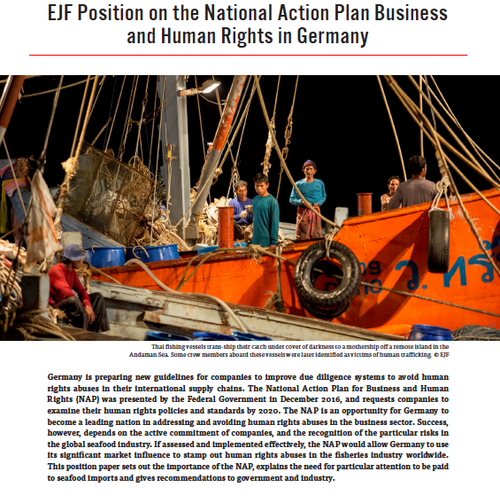 Sep 10, 2018EJF Position on the National Action Plan Business and Human Rights in GermanyRead
Sep 10, 2018EJF Position on the National Action Plan Business and Human Rights in GermanyReadThe Environmental Justice Foundation (EJF) welcomes Germany's ‘National Action Plan Business and Human Rights’ but highlights the need for a focus on abuses in the seafood industry. Germany must now engage readily available cost-effective mechanisms to build transparency in supply chains as a vital step in eradicating human rights abuses.
-
News & Media
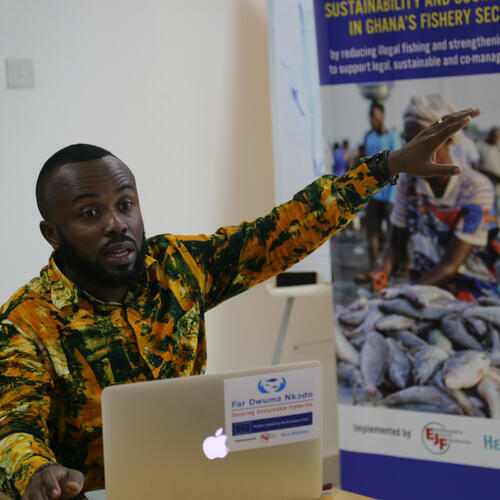 Sep 04, 2018Supporting journalism in GhanaRead
Sep 04, 2018Supporting journalism in GhanaRead
-
News & Media
 Aug 21, 2018Climate commitment: EJF and green energyRead
Aug 21, 2018Climate commitment: EJF and green energyRead -
News & Media
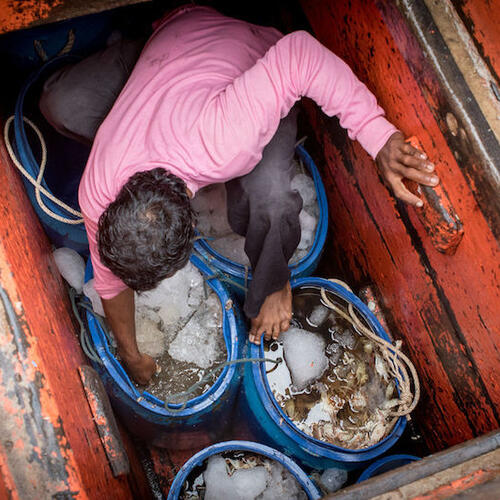 Aug 17, 2018Thailand must stand strong to eliminate human rights abuse from its fishing industryRead
Aug 17, 2018Thailand must stand strong to eliminate human rights abuse from its fishing industryRead -
Reports
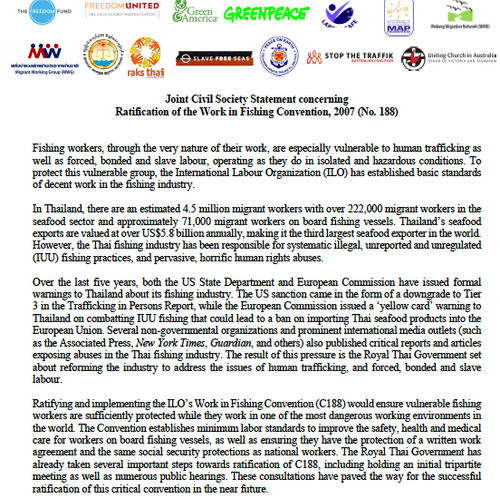 Aug 17, 2018Joint Civil Society Statement concerning Ratification of the Work in Fishing Convention, 2007 (No. 188)Read
Aug 17, 2018Joint Civil Society Statement concerning Ratification of the Work in Fishing Convention, 2007 (No. 188)ReadA statement issued by 30 NGOs calls on the Thai government to resist attempts by the National Fishing Association of Thailand to derail the ratification of the international Work in Fishing Convention, which protects fishers from human rights abuses.
-
News & Media
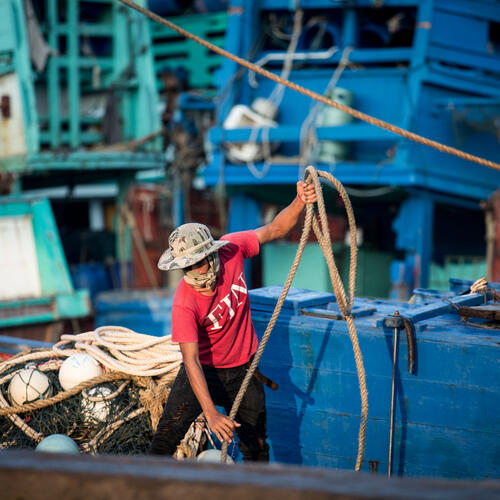 Aug 14, 2018Eliminating modern slavery from supply chainsRead
Aug 14, 2018Eliminating modern slavery from supply chainsRead
-
News & Media
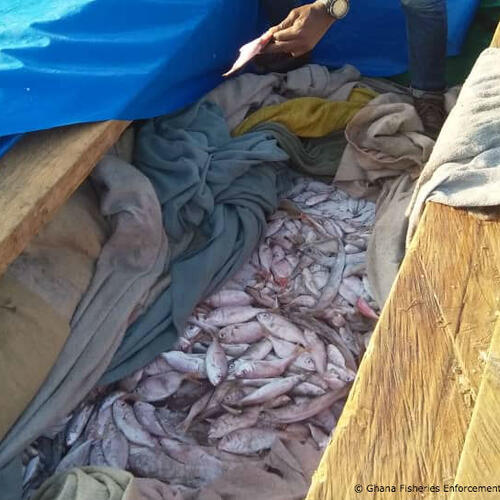 Aug 09, 2018Ghana steps up the fight against illegal fishing practicesRead
Aug 09, 2018Ghana steps up the fight against illegal fishing practicesRead -
News & Media
 Aug 09, 2018Ghana steps up the fight against illegal fishing practicesRead
Aug 09, 2018Ghana steps up the fight against illegal fishing practicesRead -
News & Media
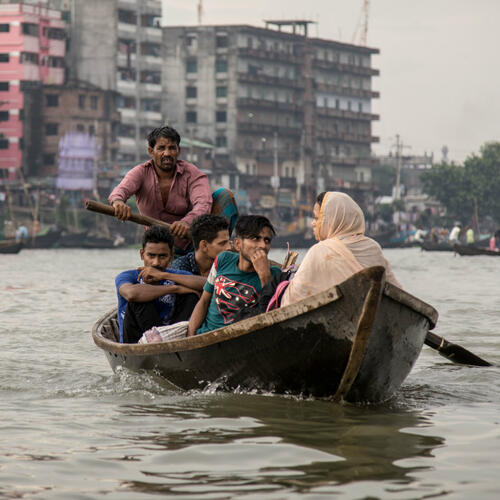 Aug 03, 2018For climate refugees, tomorrow will be too lateRead
Aug 03, 2018For climate refugees, tomorrow will be too lateRead -
News & Media
 Jul 29, 2018The vicious cycle that has plagued Thailand’s fishing industry and fuelled human traffickingRead
Jul 29, 2018The vicious cycle that has plagued Thailand’s fishing industry and fuelled human traffickingRead
-
News & Media
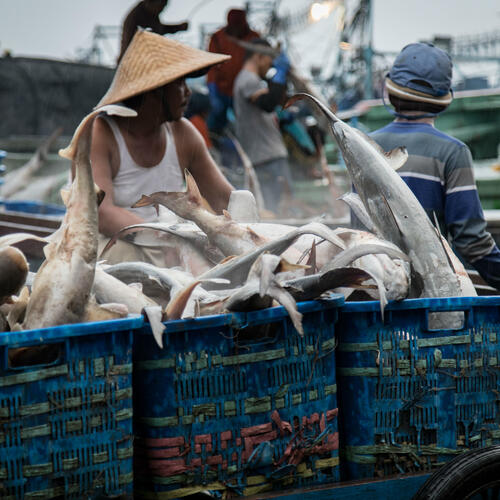 Jul 25, 2018Taiwan must tighten regulations to end human trafficking say NGO protestersRead
Jul 25, 2018Taiwan must tighten regulations to end human trafficking say NGO protestersRead -
News & Media
 Jul 18, 2018Climate commitment: EJF buys ancient woodlandRead
Jul 18, 2018Climate commitment: EJF buys ancient woodlandRead -
News & Media
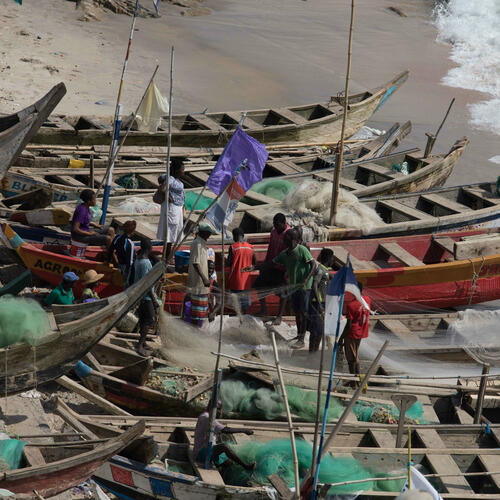 Jul 16, 2018Fair fisheries for Ghana: New reportRead
Jul 16, 2018Fair fisheries for Ghana: New reportRead -
Reports
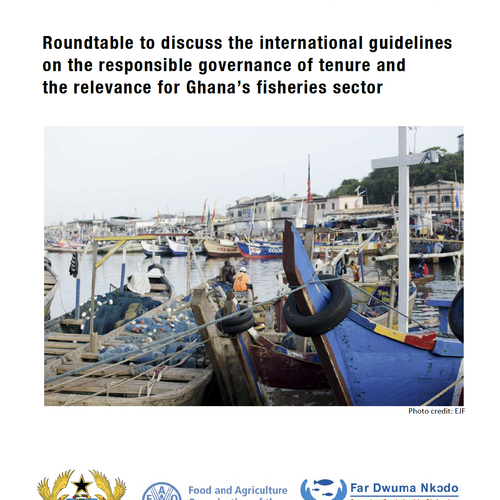 Jul 16, 2018Roundtable to discuss the international guidelines on the responsible governance of tenure and the relevance for Ghana’s fisheries sectorRead
Jul 16, 2018Roundtable to discuss the international guidelines on the responsible governance of tenure and the relevance for Ghana’s fisheries sectorReadIn the context of the on-going national reform of the fisheries law framework, the Environmental Justice Foundation, Hen Mpoano and the UN Food and Agriculture Organization organised a roundtable to address the challenges faced by Ghana's small-scale fisheries sector. The report summarises the discussions on how the implementation of the Voluntary Guidelines on the Responsible Governance of Tenure of Land, Fisheries and Forests in the Context of National Food Security in Ghana will help promote and maintain responsible governance of tenure of fisheries resources.
-
News & Media
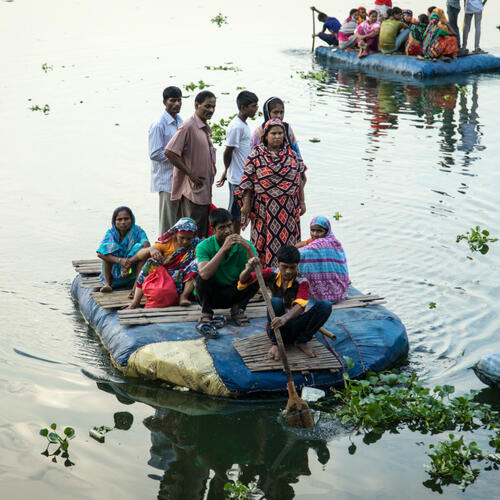 Jul 12, 2018As Donald Trump lands in the UK, EJF calls for global commitment to tackling climate change and climate justice - NOWRead
Jul 12, 2018As Donald Trump lands in the UK, EJF calls for global commitment to tackling climate change and climate justice - NOWRead -
Reports
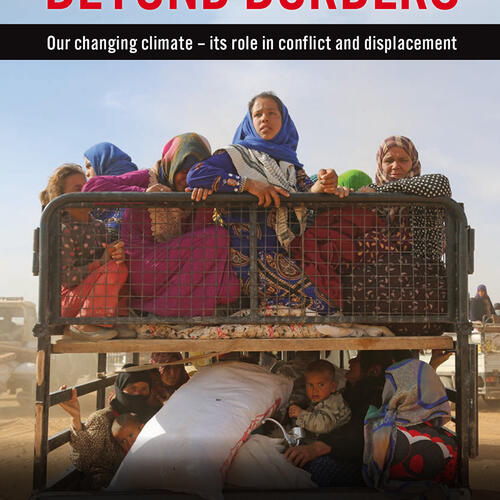 Jul 09, 2018Beyond Borders: Our changing climate – its role in conflict and displacementRead
Jul 09, 2018Beyond Borders: Our changing climate – its role in conflict and displacementReadThis report focuses on one particular result from climate change – the negative impact on food security and how this factor contributed to the desperation and anger that manifested itself against the Al-Assad regime in Syria.
The Syrian war has resulted in more than 470,000 deaths. 6.6 million people have been internally displaced and nearly five million people are residing in camps in Turkey, Jordan and Lebanon as well as an estimated 1.2 million seeking refuge in Europe.
Whilst the war was not solely a result of climate change, the intertwining effects of drought, rural to urban migration, and the increasing unrest due to a lack of government measures to avoid water scarcity, unemployment and growing inequality, are clear.
-
Reports
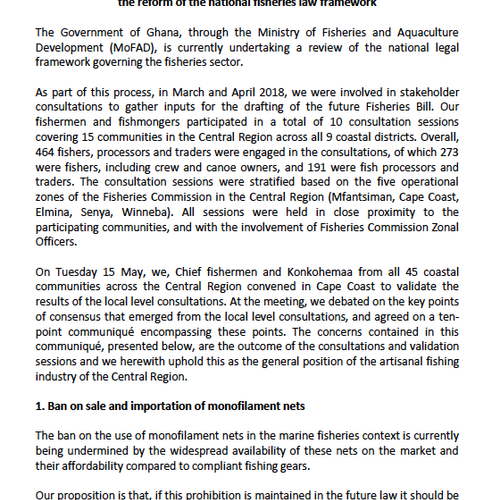 Jul 03, 2018Joint communiqué from the Ghana National Canoe Fishermen Council and National Fish Processors and Traders AssociationRead
Jul 03, 2018Joint communiqué from the Ghana National Canoe Fishermen Council and National Fish Processors and Traders AssociationReadGhana is currently undergoing a review of its national fisheries law framework, and small-scale fishers, fish traders and processors – represented by the Ghana National Canoe Fishermen Council and the National Fish Processors and Traders Association – presented a ten-point communiqué to the Ministry of Fisheries and Aquaculture Development.
-
News & Media
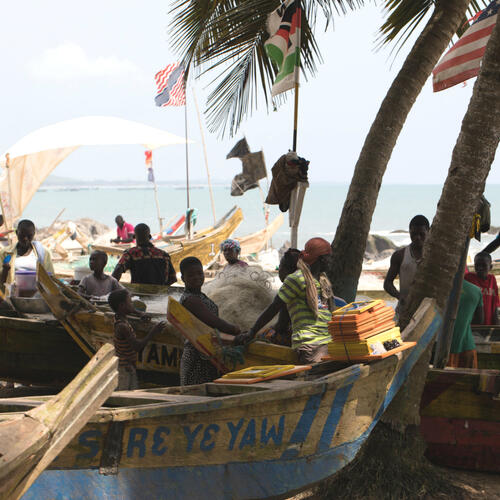 Jun 26, 2018Ghana’s small-scale fishing industry makes its voice heard in fisheries law reformsRead
Jun 26, 2018Ghana’s small-scale fishing industry makes its voice heard in fisheries law reformsRead
-
Campaign Stories
 Jun 25, 2018No Place Like HomeRead
Jun 25, 2018No Place Like HomeRead -
News & Media
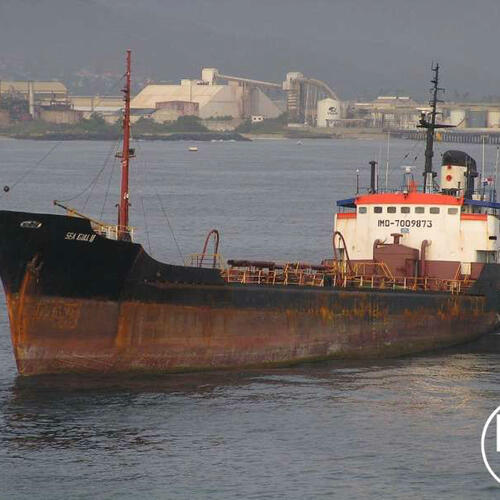 Jun 22, 2018EU’s proposal on fisheries controls: More transparency needed to end illegal fishing says EJFRead
Jun 22, 2018EU’s proposal on fisheries controls: More transparency needed to end illegal fishing says EJFRead -
News & Media
 Jun 22, 2018Ghana’s small-scale fishing industry makes its voice heard in fisheries law reformsRead
Jun 22, 2018Ghana’s small-scale fishing industry makes its voice heard in fisheries law reformsRead -
News & Media
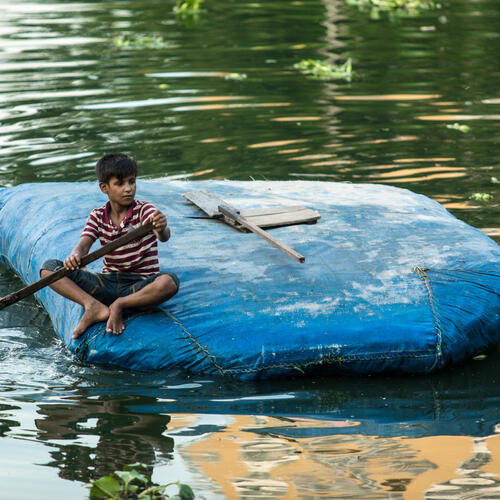 Jun 20, 2018World Refugee Day: As Germany fails to meet climate targets, it also fails to protect climate refugeesRead
Jun 20, 2018World Refugee Day: As Germany fails to meet climate targets, it also fails to protect climate refugeesRead
-
News & Media
 Jun 20, 2018Stories of climate change: EJF art exhibition at the European ParliamentRead
Jun 20, 2018Stories of climate change: EJF art exhibition at the European ParliamentRead -
Campaign Stories
 Jun 15, 2018Tradition, livelihoods and proteinRead
Jun 15, 2018Tradition, livelihoods and proteinRead -
News & Media
 Jun 15, 2018Tradition, livelihoods and proteinRead
Jun 15, 2018Tradition, livelihoods and proteinRead -
News & Media
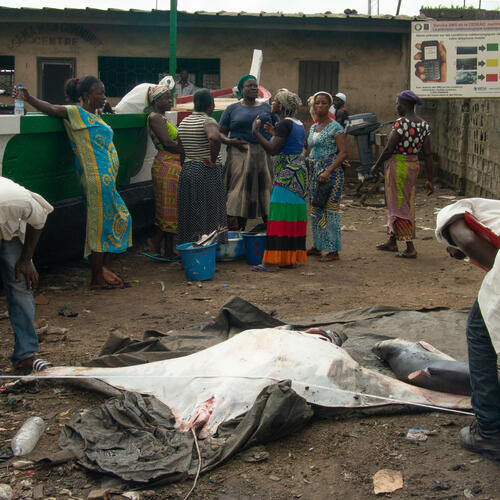 Jun 09, 2018New project to sustainably manage sharks and rays in the Ivory coastRead
Jun 09, 2018New project to sustainably manage sharks and rays in the Ivory coastRead
-
News & Media
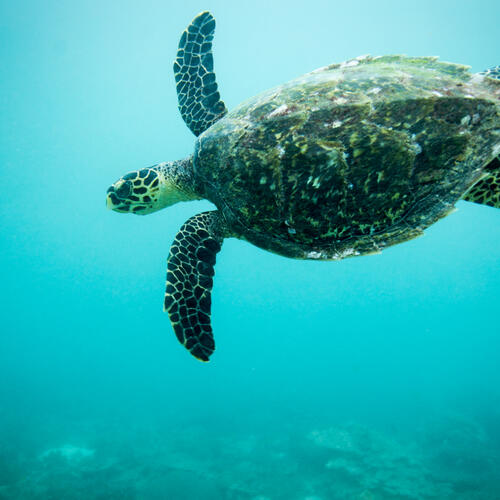 Jun 08, 2018EJF's Save the Sea Campaign launches for 6th yearRead
Jun 08, 2018EJF's Save the Sea Campaign launches for 6th yearRead -
News & Media
 Jun 05, 2018Thailand ratifies convention to tackle forced labour: EJF responseRead
Jun 05, 2018Thailand ratifies convention to tackle forced labour: EJF responseRead -
News & Media
 Jun 05, 2018EJF’s new film highlights the destructive and illegal fishing practice known as saikoRead
Jun 05, 2018EJF’s new film highlights the destructive and illegal fishing practice known as saikoRead -
News & Media
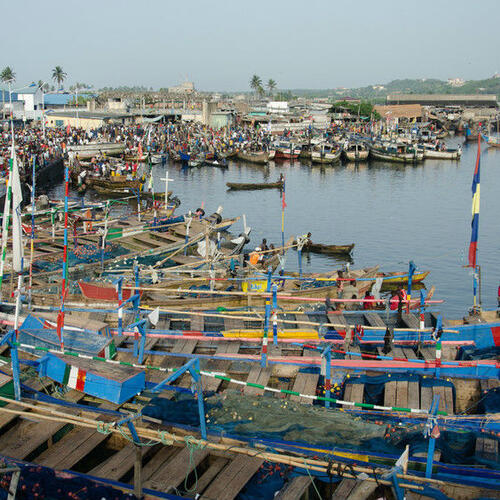 Jun 05, 2018New film reveals extent of Ghana’s fishing crisisRead
Jun 05, 2018New film reveals extent of Ghana’s fishing crisisRead
-
Reports
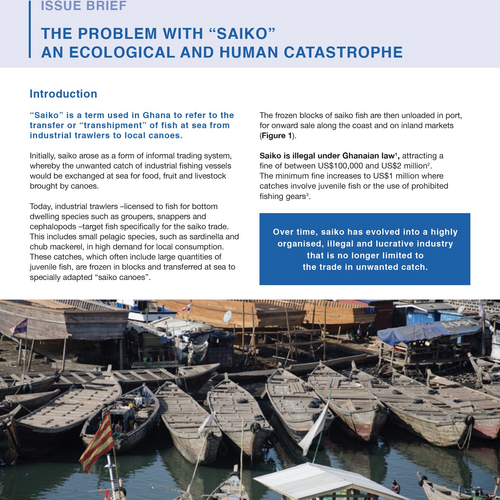 Jun 04, 2018The problem with 'saiko', an ecological and human catastropheRead
Jun 04, 2018The problem with 'saiko', an ecological and human catastropheReadMore than 200 villages along Ghana’s coastline rely on fisheries as their primary source of income. However, Ghana's small pelagic fishery, crucial for food security and livelihoods, is on the brink of collapse following decades of over-exploitation. The illegal practice of 'saiko' fishing - the transhipment of fish at sea from industrial trawlers to local canoes - has had a particularly destructive impact on Ghana’s small pelagic fisheries. This briefing looks at the scale of the practice and its impacts on livelihoods, food security and sustainability.
-
Campaign Stories
 Jun 01, 2018Shark and ray conservation in LiberiaRead
Jun 01, 2018Shark and ray conservation in LiberiaRead -
News & Media
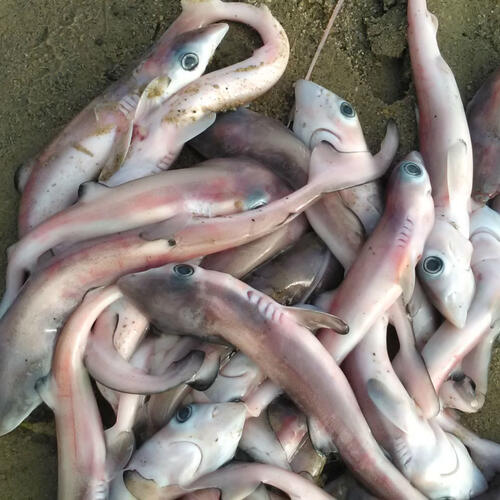 May 29, 2018A race to the bottom: The true price of overfishingRead
May 29, 2018A race to the bottom: The true price of overfishingRead -
News & Media
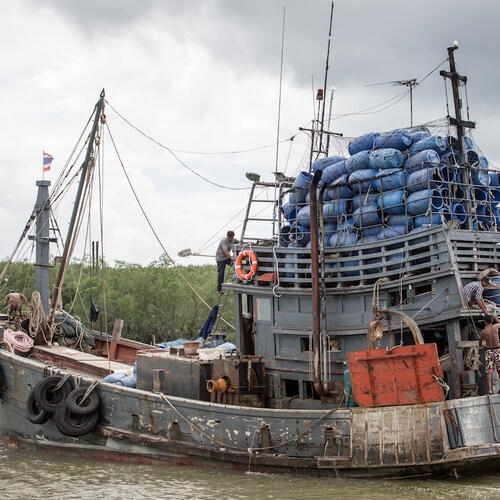 May 21, 2018As EU extends warning over Thailand’s illegal fishing, EJF highlights improvements neededRead
May 21, 2018As EU extends warning over Thailand’s illegal fishing, EJF highlights improvements neededRead
-
News & Media
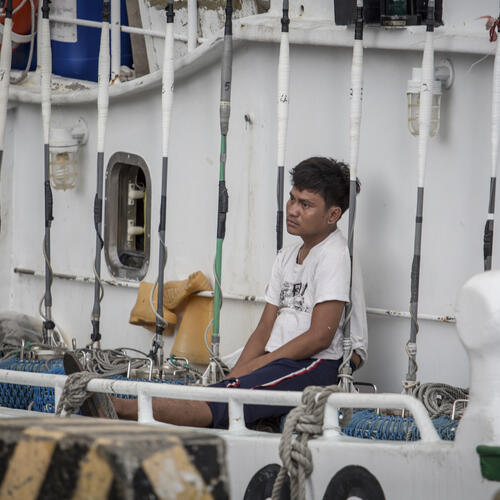 May 17, 2018NGOs call on the Taiwanese government to end abuse of migrants fishersRead
May 17, 2018NGOs call on the Taiwanese government to end abuse of migrants fishersRead -
News & Media
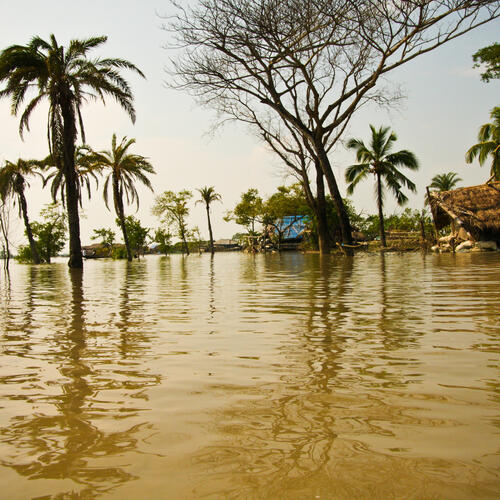 May 14, 2018EU must fully fund climate actionRead
May 14, 2018EU must fully fund climate actionRead -
News & Media
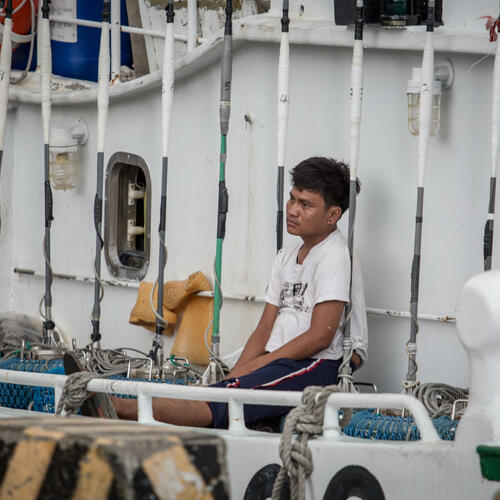 May 03, 2018NGOs call on the Taiwanese government to end abuse of migrant fishersRead
May 03, 2018NGOs call on the Taiwanese government to end abuse of migrant fishersRead -
News & Media
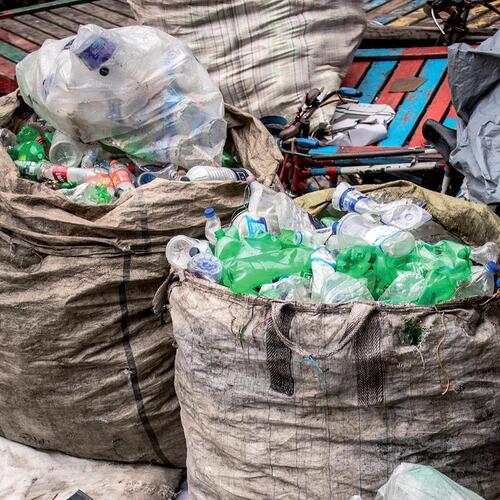 Apr 27, 2018UK plastics pact is promising but there is a long way to goRead
Apr 27, 2018UK plastics pact is promising but there is a long way to goRead
